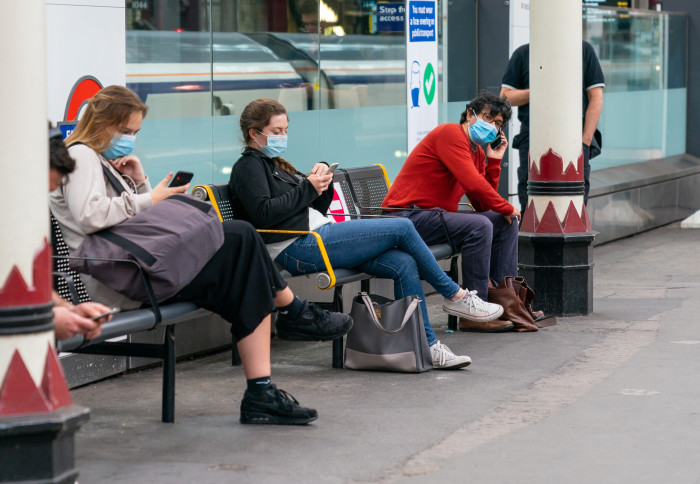Watershed moment to tackle widening health inequalities as a result of COVID-19
by Maxine Myers

The COVID-19 pandemic has shown that there is limited time to address fundamental health inequalities in the UK, said an Imperial expert.
Ms Sophie Coronini-Cronberg, from the School of Public Health at Imperial College London and a Consultant in Public Health at Chelsea and Westminster NHS Foundation Trust, was speaking at the Imperial College Academic Health Science Centre (AHSC) COVID-19 online seminar series which took place earlier this month.
Existing health inequalities
Health inequalities have existed long before COVID-19 but the pandemic has really shone a light on the unfair and unjust inequalities that exist in our society. Ms Sophie Coronini-Cronberg Honorary Senior Lecturer in the Department of Primary Care and Public Health at Imperial College London and Public Health Consultant at Chelsea & Westminster NHS Foundation Trust
Ms Coronini-Cronberg outlined how the COVID-19 pandemic has shone a light on existing health inequalities that have further widened as a result of the pandemic. She said:
“Health inequalities have existed long before COVID-19 but the pandemic has really shone a light on the unfair and unjust inequalities that exist in our society. Ethnic minorities, those from lower socio economic backgrounds and older people are some of the groups who have been disproportionality impacted by the virus. But we’ve also seen longstanding health inequalities across the population and between different groups in society that have resulted in varying levels of life expectancy , health access, experiences and outcomes. Health inequalities will continue to widen and get worse if we don’t take decisive action now to tackle this. What the pandemic has shown us is that there is only a small window for us to make fundamental changes to protect the current population and future generations.”
Increased alcohol consumption
Ms Coronini-Cronberg outlined some of the ways in which health inequalities have been exacerbated by the COVID-19 pandemic and how they can be addressed. One example is the increased consumption of alcohol during the lockdown period. In March, sales of alcohol increased by 30 per cent and around 20 per cent of adults were already drinking at harmful levels before the pandemic. Although those from affluent backgrounds were more likely to drink and drink at high levels, there was a greater impact from alcohol related diseases on those from lower income backgrounds. Alcohol support services can help patients cut down or stop their drinking before their condition progresses but these services are commissioned by local government. She said that the need for alcohol support services will likely only increase as a result of the pandemic and that access to these services should be universal and based on clinical need.
Health data
Ms Coronini-Cronberg also outlined the disparity of accurate health data between ethnic minority groups and the white population. National data suggests hospital records for white British patients are over 90 per cent accurate for patients who identify as white but for patients identifying as being from a minority ethnic group this drops to as low as 60 per cent. Currently, different approaches and ICT systems are used to capture ethnicity data for health records across the UK and Ms Coronini-Cronberg believes that a move to a universal targeted approach is needed to capture this information so more robust data can be used for health research which could improve outcomes for patients.
Digital divide
Other areas for concern includes the widening digital divide between those who can access healthcare services remotely and those who can’t. Due to restrictions, GP practices and community clinics are mostly conducting appointments remotely by telephone and online. However, some groups, such as people who are homeless, may be unable to access these services. Ms Coroni-Cronberg argued that the increased use of remote consultations could be exacerbating or creating health inequalities that need to be addressed.
Article text (excluding photos or graphics) © Imperial College London.
Photos and graphics subject to third party copyright used with permission or © Imperial College London.
Reporter
Maxine Myers
Communications Division